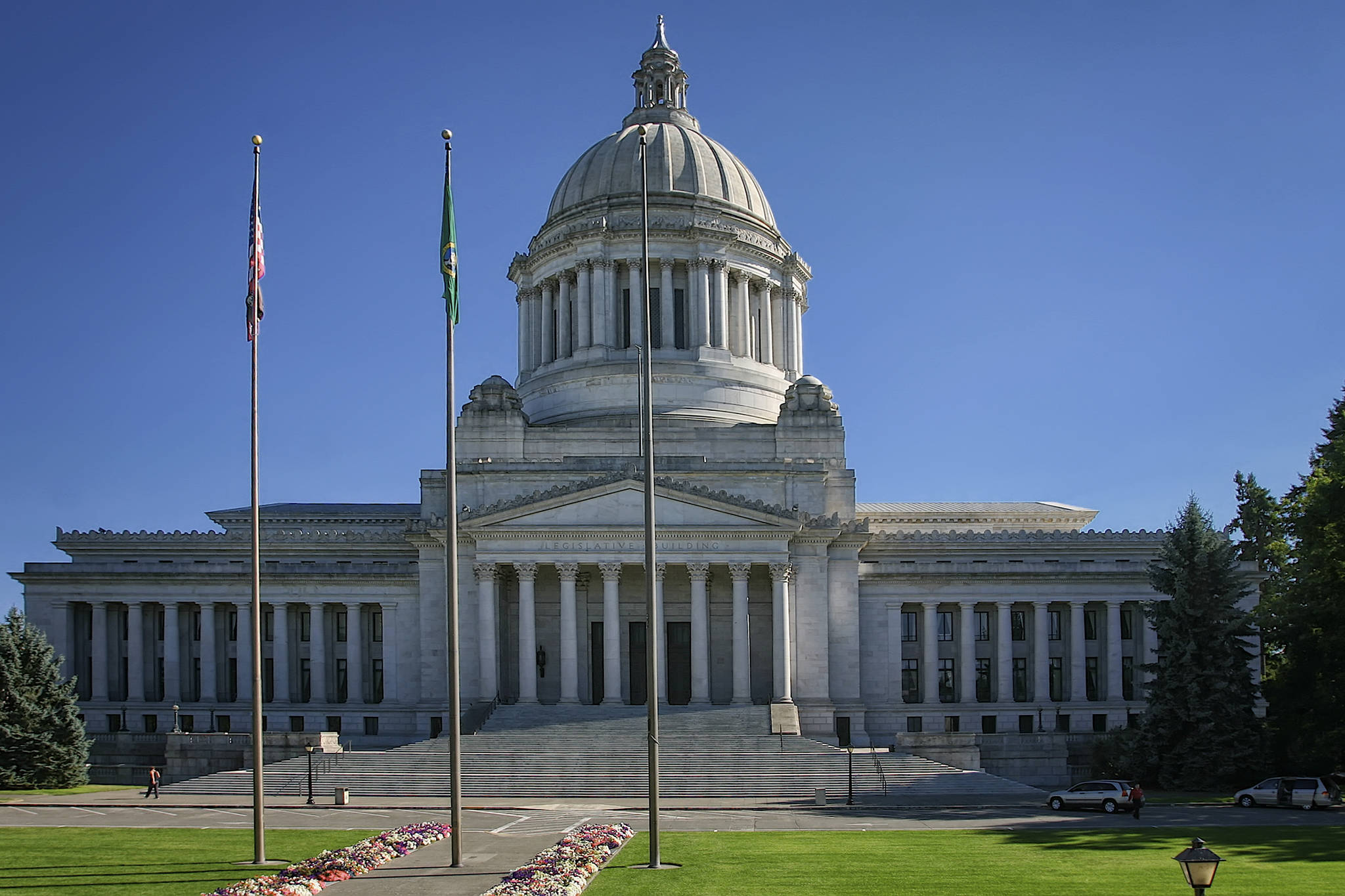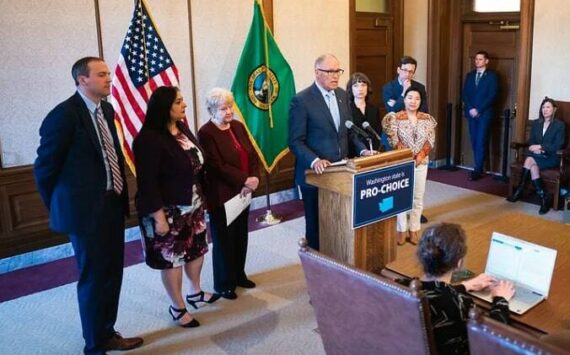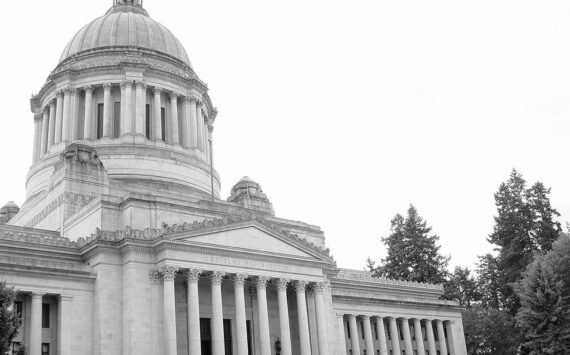OLYMPIA — House Democrats on Monday proposed a budget to better fund public schools and strengthen the social safety net with billions of dollars from new taxes on the wealthy and thousands of businesses.
The two-year, $44.6 billion spending plan pours another $1.87 billion into public schools — the bulk for salaries of teachers, administrators and staff — to push the state closer to covering the full cost of basic education by next year, as required by the state Supreme Court.
It increases funding for early learning programs and services for unemployed adults and lower-income families, provides negotiated raises for thousands of state employees and freezes tuition at colleges and universities.
There are millions of additional dollars to improve the quality of care at the state’s two psychiatric hospitals while beginning a transformation that will see increasing numbers of people with mental illness receiving treatment at facilities in the community. And there is $2.35 billion in reserves, including money in the constitutional rainy day account.
“This is a families-first budget,” said Rep. Timm Ormsby, D-Spokane, who as chairman of the House Appropriations Committee is the lead budget writer. “This is a contract between generations that says we’re going to look out for each other.”
At the heart of the proposed Democratic budget proposal is $3 billion in new revenue from tax changes, including a capital gains tax, hikes in the three primary business tax rates and revision of the real estate excise tax to make buyers of expensive properties pay more and cheaper properties pay less. And there is a renewed attempt to tax bottled water and end the sales tax exemption for out-of-state residents.
That’s the part Senate Republicans, who passed their budget plan last week, find most disagreeable. Capital gains is an income tax, they said, a point which Democrats contend is wrong. Businesses forced to pay more taxes will find a way to pass the cost along to the very people Democrats are trying to serve, they said.
“I’m just concerned. They basically paid for everything that they wanted,” said Sen. Dino Rossi, R-Sammamish, a member of the Senate Ways and Means Committee.
GOP senators also warned serious negotiations cannot begin unless and until the House majority passes the spending plan and the means of paying for it, which they consider a complete proposal.
“If they are not even willing to bring it to a vote, they are saying they are not politically possible,” said Sen. John Braun, R-Centralia, chairman of the Senate Ways and Means Committee and the Senate’s lead budget writer. “It makes it very hard to get to a deal if you can’t show what’s politically possible.”
A vote on the budget is planned Friday; however no vote is scheduled on the tax package and Democratic leaders shrugged off pressure from the GOP to do so.
“We have the votes within our caucus,” said Rep. Kristine Lytton, D-Anacortes, chairwoman of the House Finance Committee and architect of the revenue package. “As soon as we pass our budget off the floor we will begin negotiating with the Senate.”
With their budget House Democrats are trying to capitalize on the state’s growing economy, and cadre of wealthy, to steer more dollars into schools to meet their obligations in the McCleary case. They also want to restore social service and health care programs to levels of funding each enjoyed before the Great Recession.
The March revenue forecast shows the state will have $2.6 billion more to spend in the next budget from existing streams of tax receipts than it does for the current budget.
In addition to that, Democrats are pushing tax changes Lytton called “more bold and more progressive than we’ve seen come out of the Legislature in many years.”
The major components are:
$1.19 billion from a 20 percent increase in the three primary business-and-occupation tax rates. This will affect professional services, including attorneys, real estate agents, retailers and manufacturers.
An estimated 363,600 businesses will be affected in one way or another by the proposed changes, according to Democrats.
Of those, 260,000 with gross receipts less than $250,000 a year will be fully exempt from paying the business tax. Another 33,000 businesses grossing between $250,000 and $500,000 will face a higher tax rate but get some assistance that could result in them paying less than they do now.
That leaves 70,600 firms paying the higher tax rates, while 2,300 firms now paying a lower preferential tax rate, like the Boeing Co., aren’t affected.
$715 million from a new 7 percent excise tax on capital gains from the stocks, bonds and investment properties if the amount is above $25,000 for individuals and $50,000 for joint filers. There are a number of exemptions, including sale of farm land and gain in retirement accounts.
$419.7 million from lowering the real estate excise tax rate on sales of property valued under $250,000 and increasing it on the sales of property valued at $1 million and higher.
In addition, the budget assumes $128.3 million from removing the 1 percent cap on annual increases in property taxes. The measure is not part of the package, but the revenue is in the budget plan.
Following the House vote on the budget, negotiations would theoretically begin in earnest with the Republican-led Senate, which approved a $43.3 billion, two-year spending plan last week.
In that proposal, the GOP increases funding for schools by $1.8 billion. It contains a new statewide property tax levy, with revenues earmarked for education that supporters insist will lead to greater equity in spending per student in public schools.
Republican senators contend this approach will achieve compliance with a state Supreme Court edict that the cost of basic education in Washington’s 295 school districts be entirely paid by the state, and no longer with help from local levies.
The Republican approach offers smaller pay hikes for thousands of state workers while rejecting collective bargaining agreements with most state employee unions. The plan cuts funding in a handful of social service programs but does invest in mental health treatment in similar ways as the House budget in order to move patients out of state hospitals and into community facilities.
The 105-day legislative session is scheduled to end April 23.
360-352-8623; jcornfield@heraldnet.com. Twitter: @dospueblos








